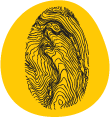
Handling complexity through dialogue and methdological eclecticism: monitoring economic diversification in rural areas
The gradual conversion from an agriculturally-based to a much more diversified economy, is commonly accepted as an important driving force for land-use and landscape change across Europe. One important aspect of such processes is the way existing resources and landscape elements are reinvented to support changing functions in the landscape. The re-use of rural buildings by non-agricultural entrepreneurs is an example of such processes, which form part of a widespread trend for economic diversification in rural landscapes. This contribution reports on the methodological results of an in-depth survey of economic diversification processes in the Belgian countryside and aims to discuss the way theoretical preconceptions and paradigms frame empirical findings . A discussion which takes its point of departure in a specific empirical context and spells out the difficult interplay between theory and field experience when studying complex processes of functional landscape change. A detailed account of examples of empirical research is given, highlighting the theoretical-methodological challenges involved in the design, performance, redesign, reinterpretation and documentation of empirical methods and results. On this basis it is argued that while theoretical models may be effective as an aid in interpreting landscape change and land use, they may also be dangerous friends which can disrupt lines of reasoning developed during fieldwork. It is discussed how such challenges may be overcome, based on the fieldwork experiences gathered.
